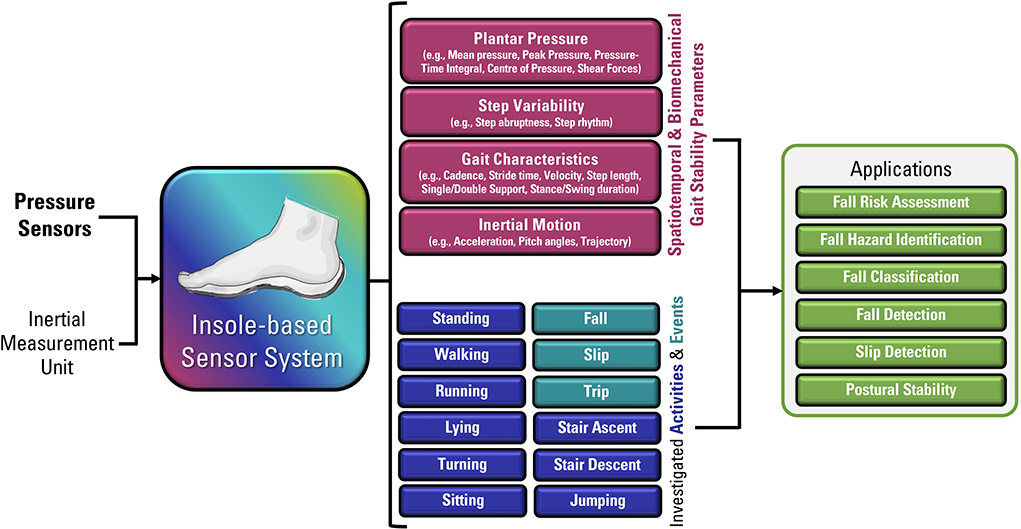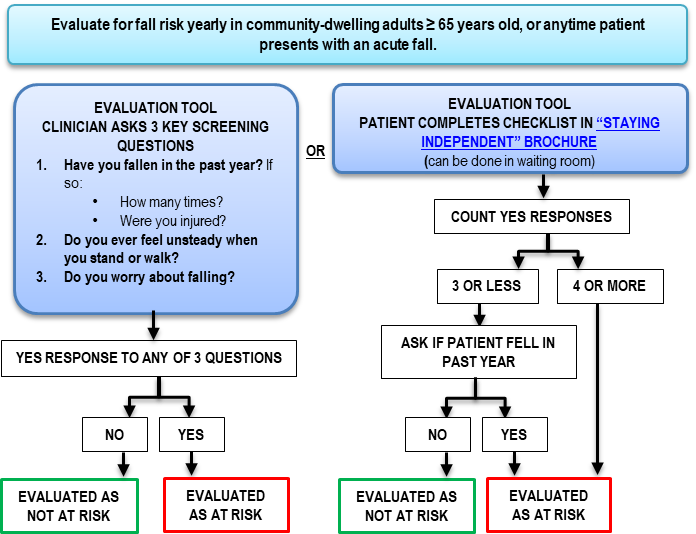Examine This Report about Dementia Fall Risk
Examine This Report about Dementia Fall Risk
Blog Article
What Does Dementia Fall Risk Do?
Table of ContentsThe Best Guide To Dementia Fall RiskNot known Incorrect Statements About Dementia Fall Risk Fascination About Dementia Fall RiskNot known Details About Dementia Fall Risk What Does Dementia Fall Risk Mean?
You could be anxious because you've had a fall before or due to the fact that you've discovered you're beginning to feel unstable on your feet. You may have observed changes to your wellness, or just really feel like you're slowing down a little. Whatever the reason, it isn't uncommon to become mindful and lose confidence, and this can quit you doing the important things you utilized to do and make you really feel extra separated.If you've had an autumn or you have actually begun to feel unstable, tell your physician also if you really feel fine or else. Your medical professional can check your equilibrium and the means you walk to see if enhancements can be made. They might be able to refer you for a drops risk evaluation or to the drops avoidance service.
This info can be acquired via meetings with the person, their caretakers, and a review of their medical records. Begin by asking the private regarding their history of falls, including the frequency and circumstances of any recent falls. Dementia Fall Risk. Inquire regarding any flexibility troubles they might experience, such as unstable or difficulty walking
Conduct an extensive testimonial of the individual's drugs, paying particular focus to those recognized to increase the danger of drops, such as sedatives or medications that reduced blood stress. Establish if they are taking several drugs or if there have been recent modifications in their medication regimen. Examine the person's home environment for possible threats that could boost the threat of drops, such as poor lighting, loose carpets, or lack of grab bars in the restroom.
Not known Incorrect Statements About Dementia Fall Risk
Guide the individual via the autumn risk analysis type, discussing each question and videotaping their actions precisely. Guarantee that the specific comprehends the purpose of the analysis and really feels comfortable supplying truthful solutions. Determine the complete danger rating based on the actions offered in the analysis type. Determine the individual's threat classification (low, medium, or high) based on the complete score and the visibility of automatic risky status aspects.
This plan may consist of exercise programs to improve stamina and equilibrium, medication changes, home modifications, and recommendations to various other professionals as needed. Consistently keep track of the person's progress and reassess their danger of drops as needed. Customize the treatment strategy based on modifications in their health and wellness standing or home environment. Offer continuous education and learning and assistance to advertise safety and lower the threat of falls in their daily living activities.
Numerous studies have revealed that physical treatment can assist to reduce the threat of dropping in adults ages 65 and older. In a new research (that looked at drops danger in ladies ages 80 and older), researchers computed the financial effect of choosing physical treatment to stop drops, and they found that doing so conserves $2,144, consisting of all the covert costs of your time, discomfort, missed life events, and the bucks spent for services.
The Single Strategy To Use For Dementia Fall Risk
Analyzing your balance, strength, and strolling capacity. A home safety evaluation. Based on the analysis results, your physical specialist will develop that site a strategy that is customized to your specific needs.
Older adults that have trouble strolling and speaking at the exact same time go to a higher danger of dropping. Dementia Fall Risk. To aid enhance your safety during day-to-day activities, your physical specialist may make a training program that will certainly test you to maintain standing and walking while you do another task. Instances include strolling or standing while counting backward, having a discussion, or carrying a bag of groceries
Establish goals for boosting their physical more helpful hints task. Work out a lot more to increase their stamina and balance. These programs frequently are led by volunteer coaches.
The Basic Principles Of Dementia Fall Risk

Measles, or rubeola, is a highly contagious, acute viral contagious disease brought on by the measles infection. Some people think about measles as just a breakout and fever that clears in a few days; nonetheless, measles can create severe health complications, specifically in youngsters younger than 5-years-old. The very best protection versus measles is the measles, mumps, and rubella (MMR) vaccine.
Loss are a typical cause of injury amongst older grownups. According to the CDC, in one year alone, fall-related injuries added to over $50 billion in clinical costs (Dementia Fall Risk). In hospital setups, older adults go to especially high risk of falls since their reduced flexibility from being restricted to a room or bed.
The Single Strategy To Use For Dementia Fall Risk

She has a medical history of seizure disorder and hypertension. She is getting an IV mixture and taking Gabapentin and Lasix. She has no history of falls, her gait is consistent, and she invalidates with no issues. The previous registered nurse states that she calls for help to the restroom when she requires to go.
Instances of usual fall interventions/measures include: Guaranteeing an individual's crucial things are within reach. Putting the patient's bed rails up with the alarm on. Assisting a patient while they're standing up from bed. Beyond understanding how to use the Johns Hopkins Fall Risk Assessment Device, it is essential that facilities include its usage right into a much more detailed autumn prevention plan.
Report this page